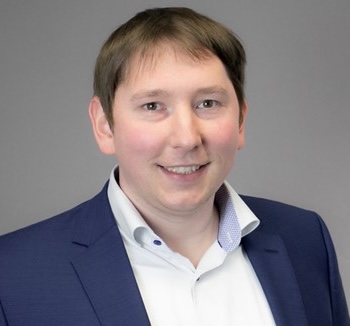Prof. Dr.-Ing. Matthias Vette
“A specialised degree? Not enough anymore!
You also need social skills and AI knowledge to be successful.“
As a co-founder, I am convinced that technological innovation is the key lever for not only thinking about transformation in companies, but also implementing it. My drive is to make technologies understandable, applicable and strategically usable – for organisations that not only want to react in a changing world, but also to shape it.
At ISTE, we develop platforms, methods and educational formats that enable the transfer of technology into everyday business life – whether in the integration of AI, the development of digital systems or the development of circular business models. We create spaces in which new technologies are not only explained, but also trialled, adapted and brought to fruition.

I am driven by the question of how technological systems can be designed to be not only efficient, but also resilient, sustainable and future-proof. This is not about pilot projects in the laboratory, but about concrete, scalable solutions for SMEs – about the interplay of automation, data intelligence and strategic control.
For me, innovation doesn’t start with new tools, but with new perspectives. This is exactly where we at ISTE come in: We combine expertise from technology, education and business model innovation to make sustainable change possible – technologically sound, economically viable and with a clear view of the reality in companies.
Background
Matthias is Professor of Robotics and Control Engineering at Trier University of Applied Sciences, Environmental Campus Birkenfeld, and co-founder of ISTE Group GmbH. His drive is to design technologies in such a way that they are not only efficient but also sustainable – ecologically, economically and socially.
After studying industrial engineering and mechatronics at Gelsenkirchen University of Applied Sciences, he completed his doctorate at the WZL at RWTH Aachen University. In his dissertation, he focussed on reconfigurable robot systems for aircraft assembly – an early example of flexible, adaptive automation that still fascinates him today. After working in applied research – including as Head of Department for Assembly Systems Technology at ZeMA – he took up a professorship in Trier in 2020. Here, he established the research area ‘Environmentally friendly production processes’ and now heads a team that conducts research into industrial robotics, the circular economy and digital transformation.
What motivates him: He wants to make technologies tangible. Whether as a professor, project manager or entrepreneur – his goal is to provide practical support to companies in their digital and sustainable transformation. To achieve this, he combines technical expertise with entrepreneurial thinking. He believes in the power of networks and education. This is why he is involved in national and international initiatives, such as the establishment of the Robotix Academy, the Remanufacturing Academy and the German Robotics Association. Formats such as summer schools, international symposia and industry partnerships are key tools for him to set knowledge in motion. His professional goal is clear: he wants to help shape solutions that enable future viability – technologically sound, economically viable and socially responsible.
